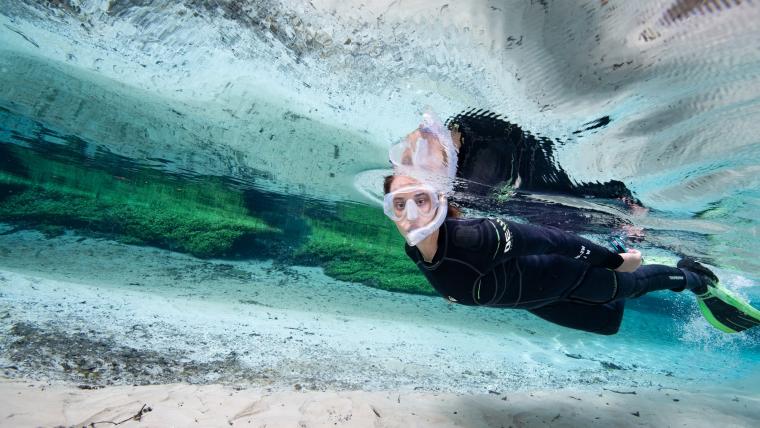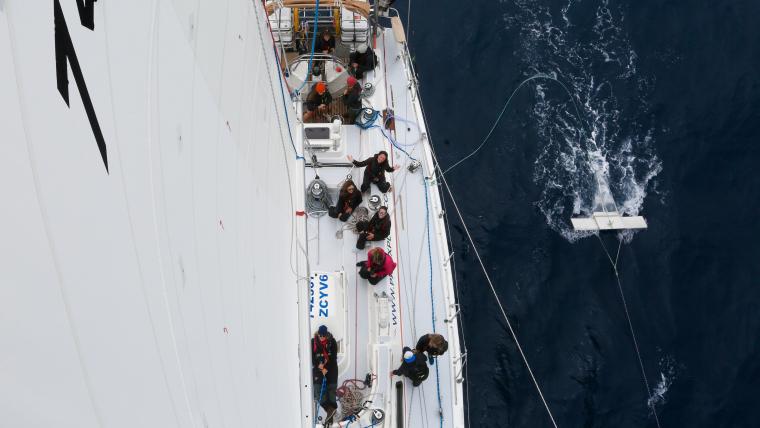
The marine biologist tackling ocean conservation from a shark’s perspective
The first time James Lea encountered a shark while scuba diving, he was captivated. Despite its reputation as a vicious predator waiting to attack people, the large fish didn’t threaten him with its razor-sharp teeth. Instead, it gracefully swam away, choosing peace. Lea understands that if there’s anything these apex predators need, it’s our protection. In the past half-century, the number of sharks in the world’s oceans has decreased by over 70%. To ensure that sharks, rays, and their habitat are guaranteed a sustainable future, Lea works as the CEO of the Save Our Seas Foundation (SOSF).
Sharks are valuable to balancing marine ecosystems, but they’re killed in the shark fin trade, unintentionally caught as bycatch, and face habitat loss. With a PhD in Marine Biology and experience as a shark research scientist, Lea’s focus on their migratory movements is informing conservation strategies. “I spend a large part of my research tracking and understanding the behaviours of over 200 different sharks from seven different species,” he says. The SOSF is involved in over 390 projects in more than 80 countries, with facilities in the United States, Seychelles and South Africa. Together with the SOSF, Lea and his team are helping safeguard protected areas in Seychelles, where 30% of their marine territory is protected, with the goal to effectively study sharks. The foundation also supports other researchers, conservationists, and educators around the world by funding their scientific and environmental ventures.
The protection of a species doesn’t only depend on scientists. To help children and adults develop respect for these creatures, the SOSF runs the Shark Education Centre in Cape Town. Through experiential initiatives and interactive exhibits, people can become aware of the importance of sharks and make environmentally responsible choices. “It's very important to me to make education about our oceans as accessible and as relatable as possible,” Lea says. The foundation hosts camps for children from under-resourced communities to learn about the marine environment. Schools are also welcome to attend the centre for learners to experience tailor-made programmes that enhance their curriculum.
By creating opportunities for people to empathise with marine life, Lea is ensuring they can live in harmony with one of the most misunderstood animals. “We're optimistic for a sustainable future for not just sharks, for our oceans as a whole,” he says.
Footage and photos by the Save Our Seas Foundation, Dan Beecham, Rainer von Brandis, Ryan Daly, Michael Scholl, Nic Good, Matthew During, Matthew Potenski, Christopher Vaughan-Jones, and Luke Saddler were used in the creation of this film.






























Please sign in to leave a comment